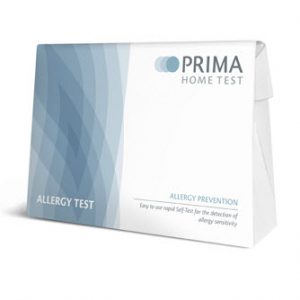‘Tis the Season for…Allergies?
The holidays are filled with beloved traditions – twinkling lights, festive carols, hot cocoa by the Christmas tree. But for some unlucky people, that evergreen fir tree might as well be a giant allergen. Christmas tree syndrome refers to the allergy and asthma symptoms triggered by exposure to moulds, pollen, and chemicals from real and artificial Christmas trees. If you feel like you always get sick around the holidays, you may be suffering from this seasonal syndrome.
What Causes Christmas Tree Syndrome?
Real Christmas trees can harbour mould due to the damp conditions they encounter during growing and transport. This mould releases spores into the air which can cause allergic reactions. Their pollen and breaking down needles also release allergens. Artificial trees and dusty decorations stored for months can also grow mould and emit chemicals that provoke symptoms once displayed.
Who’s At Risk?
According to medical experts, those with asthma are especially susceptible, as Christmas tree mould and dust can bring on wheezing and attacks. People with pollen allergies may also experience hay fever-like sneezing and sniffles. In general, anyone with sensitivity to pollutants like mould, pollen, and dust faces higher chances of having a reaction.
How to Prevent Reactions
If you find yourself sniffling every holiday season, try these tips to limit allergen exposure:
- Choose an artificial tree and thoroughly wipe it down pre-decorating
- Use airtight storage for off-season decorations
- Vacuum frequently to remove allergens shed onto floors
- Ask your doctor about allergy medication during the holidays
While Christmas trees certainly spread holiday cheer, they can also spread allergy woes for the sensitive set. Know your personal risk factors and take steps to minimise contact with these seasonal allergens. With some adjustment, even allergy sufferers can deck their halls and still have a merry Christmas!

Get to the Root of Your Allergy Woes with a Home Allergy Test
Do your eyes get red and itchy when spring rolls around? Does your skin break out in hives every time you pet the neighbour’s cat? If mysterious allergy symptoms have you sniffling and sneezing, it may be time to get to the root cause with our home allergy test kit.
Designed for home use, this simple blood test detects immunoglobulin E (IgE) antibodies your body produces when exposed to specific allergens. IgEs are responsible for releasing histamine and other chemicals that lead to aggravating allergy signs.
Who Should Use the Allergy Testing Kit?
If you experience any of the following, this DIY allergy test may provide the answers you need:
- Recurring seasonal allergy symptoms like runny nose, watery eyes or skin irritations
- Reactions when exposed to particular environments or foods
- Unexplained rashes, headaches or respiratory troubles
Testing is appropriate for ages 6+ when allergy questions linger. Getting IgE antibody levels checked can confirm suspicions.
What Are the Benefits?
With this home test kit, you can uncover allergy insights from the convenience of home. No more waiting weeks for a doctor’s appointment! Results are easy to read in just 10-15 minutes.
Having IgE levels checked allows you to:
- Verify allergies are responsible for frustrating symptoms
- Identify your unique allergen triggers
- Share results with your doctor to improve treatment plans
- Take control with lifestyle adjustments and avoidance
How Does It Work?
In 4 simple steps, you’ll collect a small blood sample and combine it with a liquid solution. If IgE antibodies are elevated, the test indicates yes in an easy-to-read format. Thoughtful kit design prevents errors in testing or results.
While not intended to replace medical care, home analysis can supplement your diagnosis. Take the guesswork out of allergies this season with the clarity of IgE antibody testing. Breathe easier once you know your triggers!
Photo by Szabo Viktor on Unsplash
Zoom Health is a leading UK supplier of Home Health Tests and Earplugs





